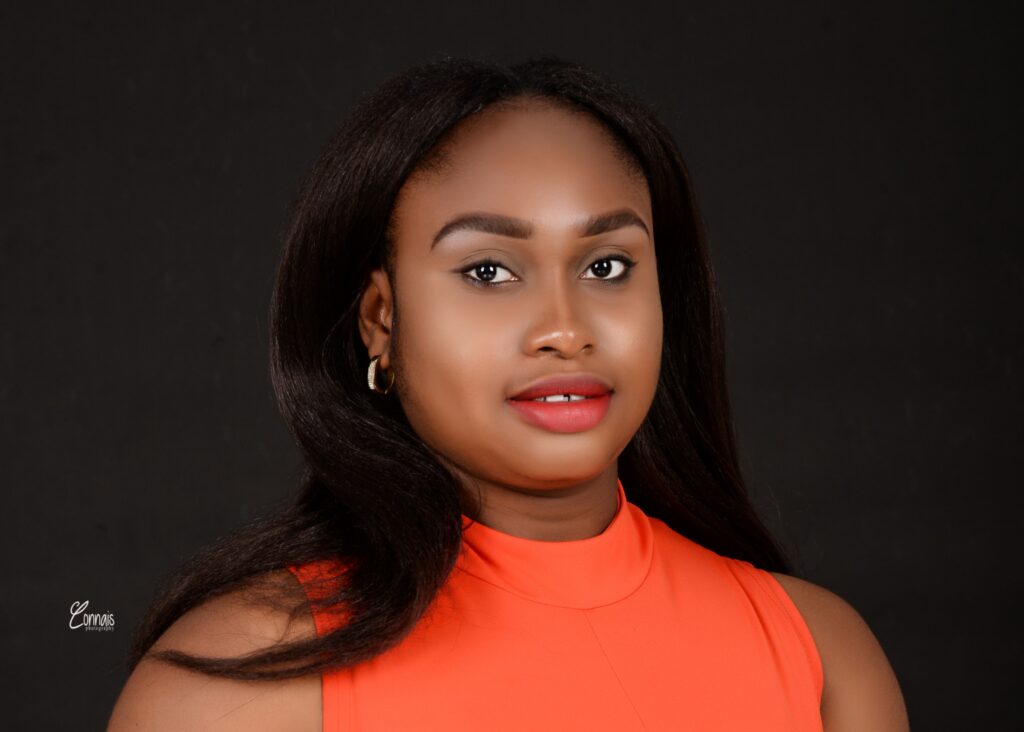“We have one another to make each other better than what we were yesterday” — embracing the collective of PhD cohorts at CSE

First year PhD student Joan Nwatu hopes to use artificial intelligence to solve problems in accessibility. She’s building connections in the U-M CSE community and in the Michigan AI Lab, where her specific interests are in the intersection of computer vision and natural language processing.
We recently spoke with Joan about her experience as a graduate student in computer science. Here’s some of what she had to say:
Getting started
In my undergraduate studies at University of Nigeria, I studied electronics engineering, where the program included work with hardware, semiconductors, and computing as well. By my third year I was thinking about which path I wanted to follow: hardware or software. I chose software, and that’s when I began to focus on computing and programming.
Soon after I chose to pursue computing, I watched a TED Talk by Professor Fei-Fei Li about how we can make computers see pictures just like humans do. That was a very impactful idea to me. She was explaining about how she created data sets, and how they trained computers and convolutional neural networks. I was really excited and fascinated by that. That was ultimately what got me into the field of artificial intelligence.
Why CSE at Michigan?
When I was applying to different colleges for grad school, I really wanted to be at a place where AI was a priority. I looked at websites for a number of top schools and some of them didn’t specifically mention AI ast a main focus. But at U-M, I could see there was an AI lab with very dedicated members. Lots of interesting things were being done with research, and the faculty and students were very passionate about the subject.
I really wanted to come here, especially after I attended the student virtual visit. It gave me the chance to talk to some other professors, and I loved the interdisciplinary culture where you could be in a lab with a particular professor but also work with people from other labs or even other departments. For example, if you are working in a lab that focuses on natural language processing, you can work with another professor who is doing human computer interaction or in computer vision or even something completely different like the psychology department.
Life as a PhD student at CSE
Everyone has this warm, welcoming spirit which makes you want to open up and strive to do better. I know people worry about good schools that are highly competitive, and there’s this fear that when you get in there, everyone’s going to be at odds with each other and try to be the best. But, here it’s different. Instead of competing against each other, you’re competing against yourself and you have people around you to help you.
I feel very fortunate to be part of this cohort because we have a very good relationship. A lot of us came together in the Intro to Grad Studies course, where we are taught how to collaborate, network, and research. We even learned things like creating a website and promoting your research, which are extremely valuable in your later career. Although we were all from different subsections of CSE, we got to meet together in that class. Being in a cohort is really a fun experience, and we have each other’s backs too, because we know what each other are experiencing as a PhD student.
My advisor, Prof. Rada Mihalcea, is also someone I can open up to when I am concerned about the things I feel like I need to improve upon. There’s a lot of women in the department, and it’s been very motivating, because you get to look up to them and say, “Oh, this, this woman is in the place I want to be in the next five years.”
Looking forward
As a first year student, right now, I’m trying to balance classes and research. I think it’s necessary because I’m learning a lot more that I will use to progress into my research. This experience is giving me the skills that I know that will help me in my career along the way. I feel that I am being really prepared for the future because classes do tie into things that I would need for my research. I think this program is a great way for me to keep improving as a researcher everyday.
My top advice to someone considering grad studies in computer science…
Reach out to people! Don’t be afraid to just look up and contact professors. Look up people who are doing the work that you love and just take that chance and reach out to them.You can also reach out to like the grad students in the lab. They usually have good information about the culture of the lab. By making these contacts, you ou get to know if this is a place you want to be.
 MENU
MENU 
